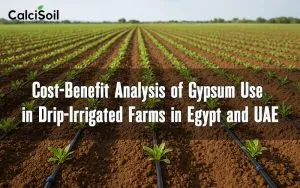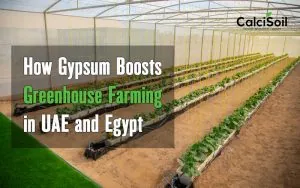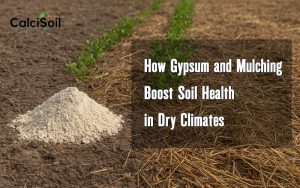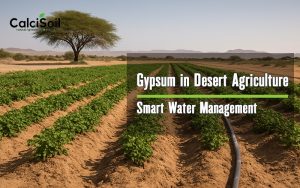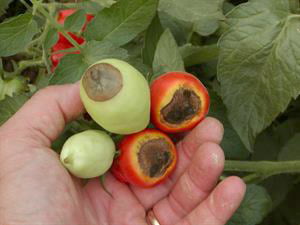
lands irrigation procedure
Use of gypsum and saline and alkaline waters used to irrigate lands
Irrigation of agricultural lands using saline and alkaline waters will reduce the quality of soils in these lands. so that after a few years of irrigation with saline water, it will cause the non-use of such lands. In such cases, farmers must use gypsum continuously to prevent a decrease in soil quality. In 2019, researchers conducted research on the effects of gypsum on soils that used saline and alkaline water for irrigation. The researchers used salinity water (water electrical conductivity unit) 3.5 dS / m, pH = 9.3 and SAR = 83 (sodium absorption ratio).
They used 20 and 40tons per hectare of gypsum to control negative impact of this water on soil properties, respectively. The results of these researchers showed that the addition of gypsum has caused the alkalinity of the soil. to be acceptable with irrigation with very alkaline water. In other words, by adding gypsum, the negative effect of water alkalinity on the soil is controlled.
In another study, gypsum effect as modifier in soils, are constantly irrigated with saline water was investigated in tomato plant. researchers used gypsum, compost, gypsum and compost mixtures to improve these soils and prevent them from becoming saline and alkaline. The results of these researchers showed that both gypsum and compost treatments affect crop growth, yield and crop weight. but the simultaneous use of gypsum and compost will have a greater impact on plant growth and yield.
The researchers also found the lowest rates of tomato scab burn (caused by a lack of calcium in the soil. ) were found in gypsum and gypsum treatments with compost. In other words, the use of gypsum increased soil calcium and eliminated plant calcium deficiency. The researchers also showed using salt water can cause more than 40%of tomato crop to burn bottom of the tomato. due to calcium deficiency (figure below).

SW = The effect of saline irrigation in control treatments (without saline irrigation).
SW+C = Irrigation treatment with salt water with the addition of compost.
SW+G = Irrigation treatment with salt water with the addition of gypsum.
SW+G+C = Simultaneously add gypsum and compost.

